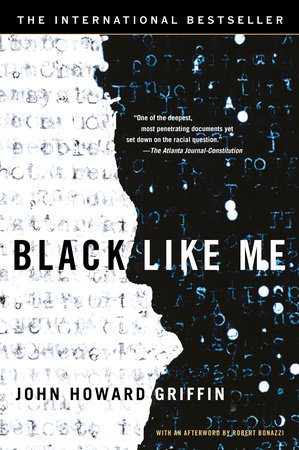The white man who pretended to be blackPosted in Articles, Biography, History, Media Archive, Passing, United States on 2015-02-23 21:45Z by Steven |
The white man who pretended to be black
The Telegraph
2015-02-05
With the release of the movie Selma, a lot of Americans are asking how far race relations have really come in the United States. On the one hand, the movie depicts the success of the Sixties civil rights crusade – its victory confirmed by Barack Obama’s election in 2008.
On the other hand, the recent deaths of young black men at the hands of white cops and vigilantes, and the resulting race riots, suggest that a lot of things haven’t changed at all. Whites may ask, “Why are working-class blacks angry? They have the right to vote and an African-American president – everything Martin Luther King Jr fought for.”
But some of the apparent triumph of black civil rights is a veneer. Racism isn’t just about law but about attitudes. Attitudes that are hard to change because of the gulf of understanding between different communities.
Can a white person ever really understand how a black person sees the world? Back in 1959, six years before Martin Luther King marched for civil rights in Selma, one man tried. A white Texan writer called John Howard Griffin walked into a doctor’s office in New Orleans and asked him to turn his skin colour black. Griffin took oral medication and was bombarded with ultraviolet rays; he cut off his hair to hide an absence of curls and shaved the back of his hands. Then he went on a tour of the Deep South.
The result was a bestselling book called Black Like Me, which is still regarded as an American classic. Griffin wanted to test the claim that although the southern United States was segregated it was essentially peaceful and just – that the two races were separate but equal…
Read the entire article here.

